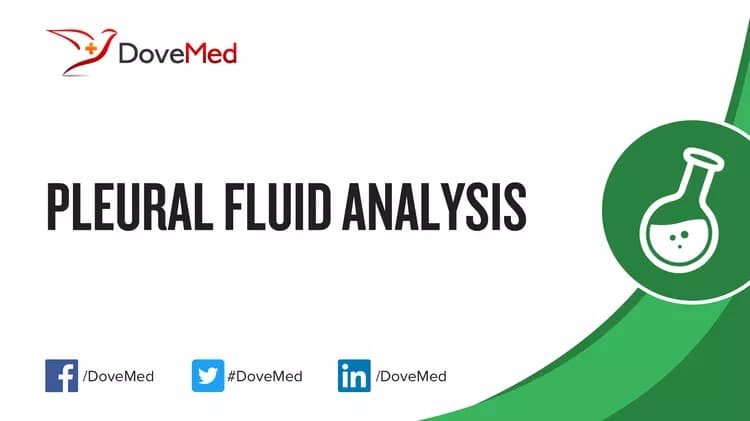What are the other Names for this Test? (Equivalent Terms)
- Pleural Fluid Cell Count Test
- Pleural Fluid Test
- Thoracentesis Fluid Analysis
What is Pleural Fluid Analysis? (Background Information)
- The lungs are surrounded by a fluid-filled space. This is known as the pleural layer. “Pleural” refers to the inner walls of the thorax
- The pleural layer helps to cushion and support the lungs. Most importantly, the fluid lubricates the lungs, during breathing
- The pleural fluid is continuously recycled and maintained. This ensures that the fluid remains sterile and can adequately perform its function of assisting the lungs, during breathing
- The recycling process works according to pressure differences. A pumping heart creates pressures, which forces the fluid within the blood vessels, out into the pleural layer. Additionally, certain proteins in blood create osmotic forces in the opposite direction, stimulating influx of fluid into the blood vessel
- This pressure interplay provides an exchange of fluid between the pleural layer and surrounding blood vessels. This process keeps the fluid levels relatively constant. An excess of pleural fluid is an abnormal condition.
- Fluid buildup in the pleural layer is often irritating and symptomatic. Pleural fluid buildup is attributable to two main causes:
- The first is fluid exchange imbalance, resulting from the disruption of the recycling system. This buildup is called a transudate. The fluid obtained is dilute, yet sterile
- The second is inflammation resulting from some outside agent, such as bacteria or even a knife wound, causing an injury to the body. This buildup is called an exudate. The fluid obtained contains more proteins and white blood cells, especially in the case of an infection
- Each cause necessitates different treatment measures, and so the discriminating ability of the Pleural Fluid Analysis is vital
- A Pleural Fluid Analysis Test identifies the makeup of fluid in the pleural layer. In addition to this, the test serves as an excellent opportunity to remove fluid and alleviate pressure in the pleural layer
What are the Clinical Indications for performing the Pleural Fluid Analysis?
Following are the clinical indications for performing a Pleural Fluid Analysis:
- Chest pain, especially observed with deep breathing
- Painful cough
- Flu-like symptoms
- Serious trauma or injury, more so, when accompanied by the above symptoms
How is the Specimen Collected for Pleural Fluid Analysis?
Sample required: Pleural fluid
Process: Insertion of a needle into the pleural cavity (thoracentesis).
Preparation required: Aseptic technique and a local anesthetic
What is the Significance of the Pleural Fluid Analysis Result?
Identification of a fluid low in protein (transudate) may mean:
- Heart disorders or congestive heart failure
- Liver disorders or cirrhosis
Identification of a fluid high in protein (exudate) may mean:
- Tuberculosis or pneumonia
- Sarcoidosis, due to excess white blood cells
- Pancreatitis
- Lymphoma or other cancers
- Pulmonary infarction due to local oxygen deprivation
The laboratory test results are NOT to be interpreted as results of a "stand-alone" test. The test results have to be interpreted after correlating with suitable clinical findings and additional supplemental tests/information. Your healthcare providers will explain the meaning of your tests results, based on the overall clinical scenario.
Additional and Relevant Useful Information:
- The Pleural Fluid Test is performed in conjunction with multiple different tests and imaging techniques, such as x-rays, to arrive at a diagnosis
Certain medications that you may be currently taking may influence the outcome of the test. Hence, it is important to inform your healthcare provider, the complete list of medications (including any herbal supplements) you are currently taking. This will help the healthcare provider interpret your test results more accurately and avoid unnecessary chances of a misdiagnosis.
Related Articles
Test Your Knowledge
Asked by users
Related Centers
Related Specialties
Related Physicians
Related Procedures
Related Resources
Join DoveHubs
and connect with fellow professionals


0 Comments
Please log in to post a comment.